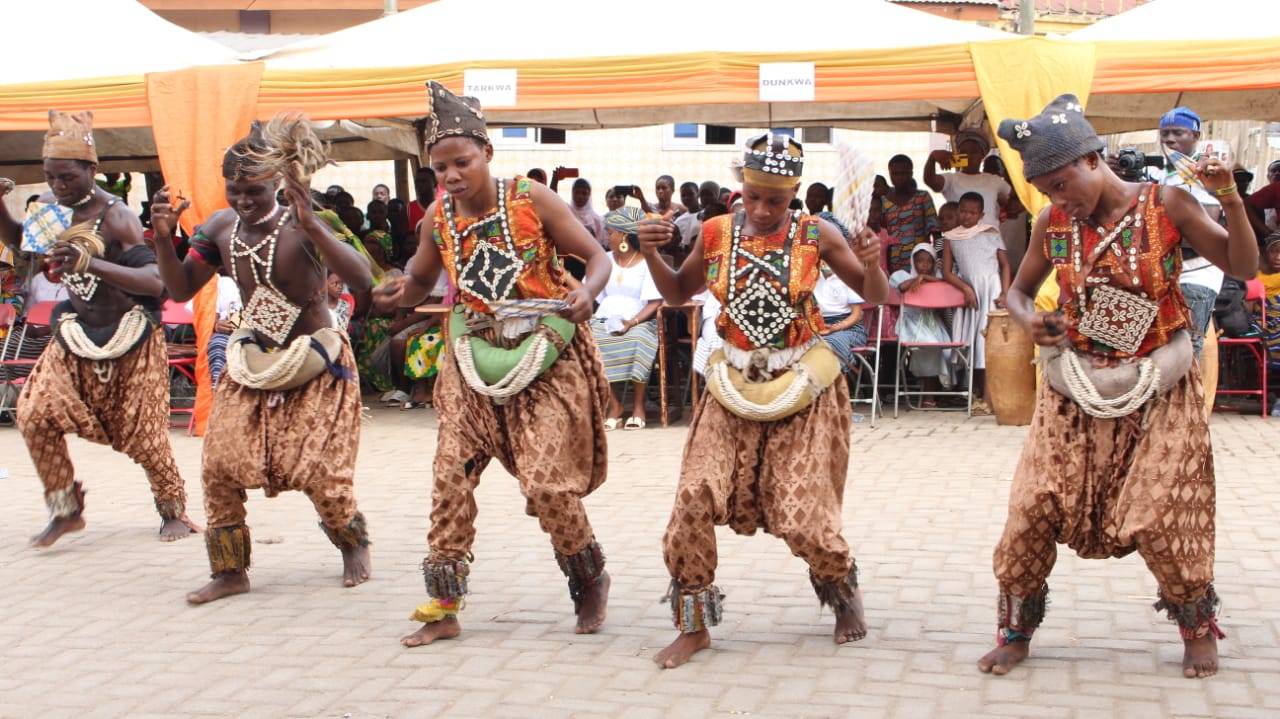The Damba Festival is a vibrant and culturally significant celebration that takes place in several West African countries, including Ghana, Burkina Faso, and Mali. Rooted in the rich history of the Dagombas, one of Ghana's ethnic groups, this festival is a mesmerizing display of tradition, spirituality, and community bonding.
A Historical Tapestry:
The origins of the Damba Festival can be traced back to the 17th century when the Dagombas migrated to their present-day homeland in Northern Ghana. It was during this time that the festival was established to commemorate the birth of the Prophet Muhammad. Over the centuries, the Damba Festival has evolved, blending Islamic religious elements with indigenous customs and practices.
The Festival's Essence:
The Damba Festival typically spans a week or more, with the main events culminating on the 10th day of the Islamic lunar calendar month, Shawwal. The celebration revolves around various rituals and ceremonies, including prayers, processions, and drumming and dancing performances.
Spiritual Significance:
At the heart of the Damba Festival are prayers offered to Allah for guidance, unity, and blessings. These prayers are conducted by Islamic clerics and are followed by processions through the streets, led by the chief and his elders. The vibrant and colorful attire of the participants adds to the festival's visual spectacle.
Rhythms of the Drums:
One cannot talk about the Damba Festival without mentioning the mesmerizing drumming and dancing that accompanies it. Skilled drummers beat traditional drums like the talking drum and the xylophone, setting the rhythm for energetic and synchronized dances. The beat of the drums reverberates through the air, inviting everyone to join in the festivities.
Community and Unity:
The Damba Festival serves as a unifying force, bringing together people from diverse backgrounds and fostering a sense of belonging. It's a time when family ties are strengthened, old friendships rekindled, and new connections formed. The spirit of togetherness is palpable, making the festival not only a religious observance but also a social celebration.
Preserving Tradition:
In a rapidly changing world, the Damba Festival stands as a testament to the importance of preserving cultural heritage. It is a reminder of the rich tapestry of traditions that form the foundation of many West African communities. The festival provides a platform for passing down customs, stories, and values to the younger generation, ensuring that these traditions continue to thrive.
Conclusion:
The Damba Festival is a captivating journey into the heart of West African culture and spirituality. Its vibrant colors, rhythmic beats, and strong sense of community make it a celebration that not only honors the past but also brings people together in the present. As this festival continues to evolve, it remains a symbol of the enduring spirit of unity and tradition in the region.



No comments yet
Be the first to share your thoughts!